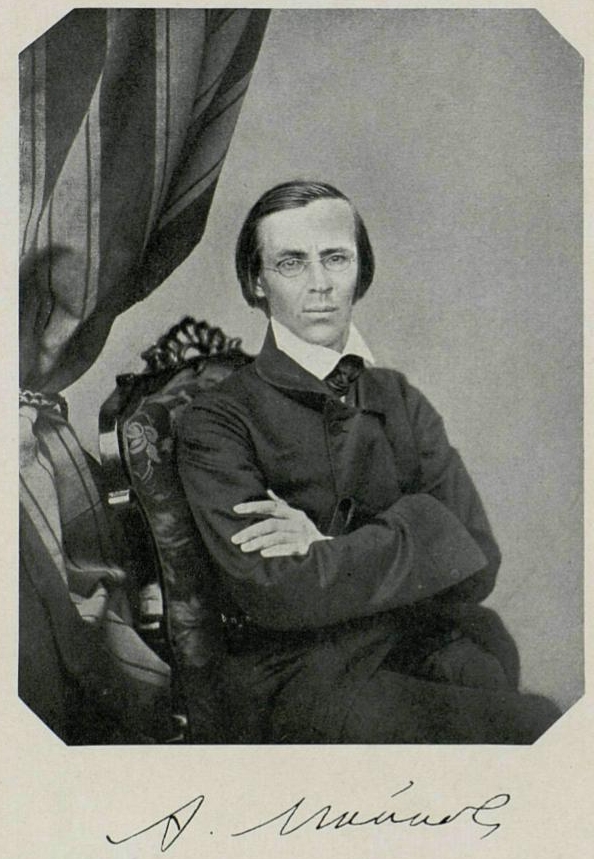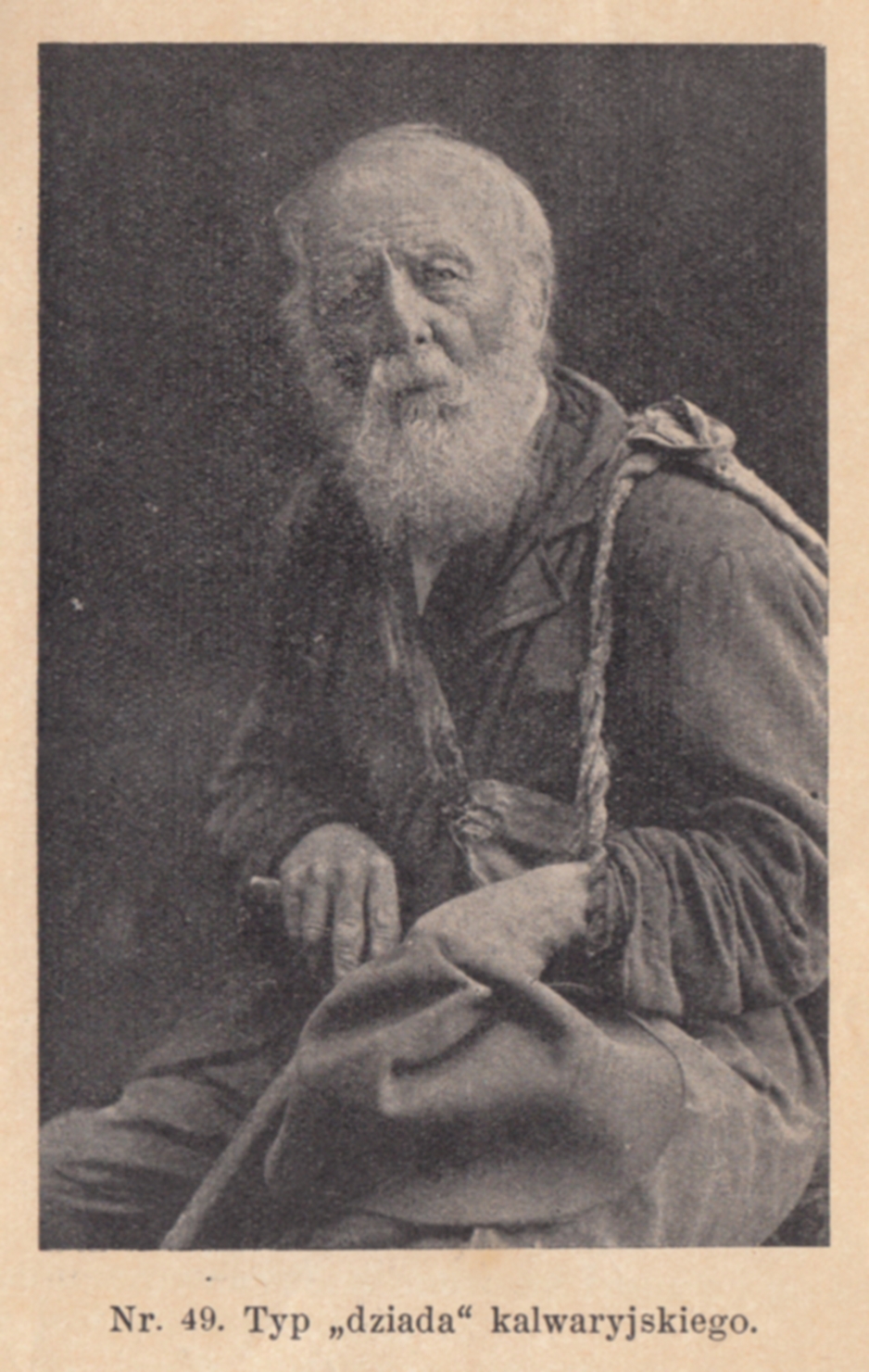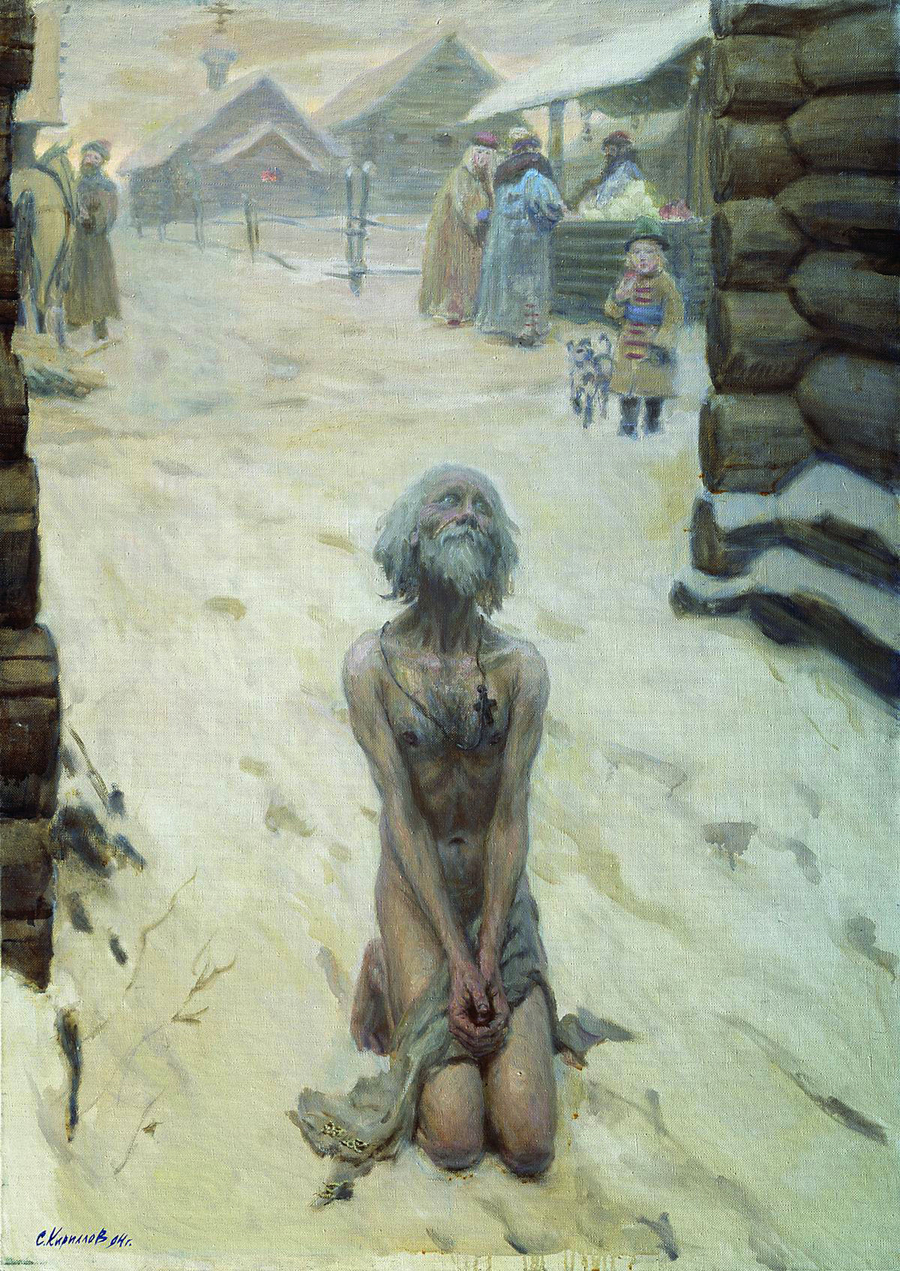|
Russian Wandering
In the history of Russian Orthodox religion the tradition of wandering (, ''strannichestvo'') was a special way of life, a form of piety, devotion, and the search of God, which consisted in rejecting the earthly ways of life. A person was called ''странник'', ''strannik'', literally "wanderer". It is similar to the concept of (Christian) pilgrimage and often is translated in English with this term. However, in Russian language pilgrimage is denoted by a different word: (, palomnichestvo). The major distinction is that pilgrimage has a finite goal: a visit of some holy place, while ''strannichectvo'' is the wandering way of life. It should be distinguished from aimless wandering, or wandering of the poor, vagrancy. For the purpose of this distinction, the terms "spiritual wandering" and "holy wanderer" were used. History ''Strannichestvo'' did evolve from the Christian tradition of pilgrimage. Some pilgrims carried out pilgrimage into several places spending a conside ... [...More Info...] [...Related Items...] OR: [Wikipedia] [Google] [Baidu] |
Apollon Maykov
Apollon Nikolayevich Maykov (, , Moscow – , Saint Petersburg) was a Russian poet, best known for his lyric verse showcasing images of Russian villages, nature, and history. His love for ancient Greece and Rome, which he studied for much of his life, is also reflected in his works. Maykov spent four years translating the epic ''The Tale of Igor's Campaign'' (1870) into modern Russian. He translated the folklore of Belarus, Greece, Serbia and Spain, as well as works by Heine, Adam Mickiewicz and Goethe, among others. Several of Maykov's poems were set to music by Russian composers, among them Rimsky-Korsakov and Tchaikovsky. Maykov was born into an artistic family and educated at home, by the writer Ivan Goncharov, among others. At the age of 15, he began writing his first poetry. After finishing his gymnasium course in just three years, he enrolled in Saint Petersburg University in 1837. He began publishing his poems in 1840, and came out with his first collection in 1842. The ... [...More Info...] [...Related Items...] OR: [Wikipedia] [Google] [Baidu] |
Russian Orthodox Church
The Russian Orthodox Church (ROC; ;), also officially known as the Moscow Patriarchate (), is an autocephaly, autocephalous Eastern Orthodox Church, Eastern Orthodox Christian church. It has 194 dioceses inside Russia. The Primate (bishop), primate of the ROC is the patriarch of Moscow and all Rus'. The History of the Russian Orthodox Church, history of the ROC begins with the Christianization of Kievan Rus', which commenced in 988 with the baptism of Vladimir the Great and his subjects by the clergy of the Ecumenical Patriarch of Constantinople, ecumenical patriarch of Constantinople. Starting in the 14th century, Moscow served as the primary residence of the Russian List of metropolitans and patriarchs of Moscow, metropolitan. The ROC declared autocephaly in 1448 when it elected its own metropolitan. In 1589, the metropolitan was elevated to the position of patriarch with the consent of Constantinople. In the mid-17th century, a series of reforms led to Schism of the Russian ... [...More Info...] [...Related Items...] OR: [Wikipedia] [Google] [Baidu] |
Culture Of The Russian Empire
Culture ( ) is a concept that encompasses the social behavior, institutions, and norms found in human societies, as well as the knowledge, beliefs, arts, laws, customs, capabilities, attitudes, and habits of the individuals in these groups.Tylor, Edward. (1871). ''Primitive Culture''. Vol 1. New York: J. P. Putnam's Son Culture often originates from or is attributed to a specific region or location. Humans acquire culture through the learning processes of enculturation and socialization, which is shown by the diversity of cultures across societies. A cultural norm codifies acceptable conduct in society; it serves as a guideline for behavior, dress, language, and demeanor in a situation, which serves as a template for expectations in a social group. Accepting only a monoculture in a social group can bear risks, just as a single species can wither in the face of environmental change, for lack of functional responses to the change. Thus in military culture, valor is counted a ... [...More Info...] [...Related Items...] OR: [Wikipedia] [Google] [Baidu] |
Paraskeva Diveevskaya
Paraskeva Diveyevskaya or Pasha Sarovskaya (Russian language, Russian: Параскева Дивеевская) born between 1795 and 1807, Nikolskoye village, Spassky Uyezd (Tambov Governorate), Spassky uyezd, Tambov Governorate, Russian Empire, died 22 September 1915, Diveyevo, Russian Empire) was a Russian Foolishness for Christ, fool and Russian wandering, wanderer who became widely known at the turn of the 19th and 20th centuries. She met the Emperor Nicholas II. Legend has it that she predicted his Abdication of Nicholas II, abdication, tragic death and canonization. Her meetings with Empresses Alexandra Feodorovna (Alix of Hesse), Alexandra Feodorovna and Maria Feodorovna (Dagmar of Denmark), Maria Feodorovna, as well as with Grand Duke Grand Duke Sergei Alexandrovich of Russia, Sergei Alexandrovich are documented. There are unconfirmed reports of an attempt by Grigori Rasputin, Grigory Rasputin and Anna Vyrubova to communicate with her. Paraskeva Diveyevskaya is canonized ... [...More Info...] [...Related Items...] OR: [Wikipedia] [Google] [Baidu] |
Vasily The Barefoot
''Vasily the Barefoot'' (in Russian language, Russian: Василий Босоногий) was a Russian wandering, Russian wanderer of the late 19th and early 20th centuries. He gained great popularity among his contemporaries through his Charity (practice), charitable practice, his campaign against alcoholism and profanity, and the construction of a temple in his native village, for which he raised funds during his travels throughout the Russian Empire. He was introduced to the House of Romanov, imperial family and corresponded for many years with representatives of the ruling dynasty about the construction of the temple. His exotic lifestyle and unusual appearance attracted the attention of the creative ''intelligentsia'' and High society, secular society. Sources agree that Vasily Tkachenko was led to the way of wandering by the Archimandrite of the Trinity Monastery of St. Jonas, , canonized by the Russian Orthodox Church. Among Vasily's close friends were the famous adventurer ... [...More Info...] [...Related Items...] OR: [Wikipedia] [Google] [Baidu] |
Anthony The Wanderer
Anthony the Wanderer (; real name Anthony (Anton) Isaevich Petrov; — after 1911) was a Russian wanderer, widely known in Russia during the reigns of Emperors Alexander II, Alexander III and Nicholas II. Some contemporaries, and on the basis of their testimonies, later Soviet and Russian historians attributed to him the influence on the last Russian emperor. Anthony the Wanderer collected funds for the construction of village churches and schools. However, there were confirmed several cases of entrusted to him money thefts, and fraud in building materials and payment for work; these thefts took place over a long period of time. To humble his body, Anthony wore two poods penance chains (') and a heavy cane. Regardless of the weather or the season, he walked barefoot. Anthony was known as a righteous man, but his contemporaries were also aware of cases of drunkenness involving minors. Anthony the Wanderer was closely acquainted with a number of prominent government officials, ... [...More Info...] [...Related Items...] OR: [Wikipedia] [Google] [Baidu] |
Dziady (wandering Beggars)
(plural, old men, beggars; singular: ), also (begging ) or ( calvarian ) was a term commonly used in many regions of Poland (as well as in other Slavic countries) to refer to wandering beggars. Calling beggars was associated with the idea that they have mediumship skills, are a kind of link with the otherworld and representatives of the dead ( ''dziady''-ancestors). The activity of In traditional itinerant rural communities, performed important social functions. They were not perceived and treated as 'ordinary' beggars but as intermediaries between the world of the living and the dead. Thanks to them, it was possible to establish contact with the ancestors and fulfill the duties imposed on them by tradition (e.g. feed them). It was also believed that the prayer of had a special power, therefore, especially during the periods of All Souls' Day, they were asked to remember the souls of their ancestors, rewarded with food or financial donations. In some areas, also played ... [...More Info...] [...Related Items...] OR: [Wikipedia] [Google] [Baidu] |
Asceticism
Asceticism is a lifestyle characterized by abstinence from worldly pleasures through self-discipline, self-imposed poverty, and simple living, often for the purpose of pursuing Spirituality, spiritual goals. Ascetics may withdraw from the world for their practices or continue to be part of their society, but typically adopt a Frugality, frugal lifestyle, characterised by the renunciation of Economic materialism, material possessions and physical pleasures, and also spend time fasting while concentrating on the practice of religion, prayer, or meditation. Some individuals have also attempted an ascetic lifestyle to free themselves from addictions to things such as Alcoholic beverage, alcohol, tobacco, Drug, drugs, entertainment, Sexual intercourse, sex, food, etc. Asceticism has been historically observed in many religious and philosophical traditions, most notably among Ancient Greek philosophy, Ancient Greek philosophical schools (Epicureanism, Gymnosophists, Gymnosophism, Stoic ... [...More Info...] [...Related Items...] OR: [Wikipedia] [Google] [Baidu] |
Yurodivy
Foolishness for Christ (; ) refers to behavior such as giving up all one's worldly possessions upon joining an ascetic order or religious life, or deliberately flouting society's conventions to serve a religious purpose—particularly of Christianity. Such individuals have historically been known as both "holy fools" and "blessed fools". The term "fool" connotes what is perceived as feeblemindedness, and " blessed" or "holy" refers to innocence in the eyes of God.Frith, Uta. (1989) Autism: The Elegant Enigma. Malden, MA: Blackwell Publishing. The term ''fools for Christ'' derives from the writings of Paul the Apostle. Desert Fathers and other saints acted the part of Holy Fools, as have the ''yurodivy'' (or iurodstvo) of Eastern Orthodox asceticism. Fools for Christ often employ shocking and unconventional behavior to challenge accepted norms, deliver prophecies, or to mask their piety.Parry (1999), p. 233 Old Testament Certain prophets of the Old Testament who exhibited signs ... [...More Info...] [...Related Items...] OR: [Wikipedia] [Google] [Baidu] |
Nikolai Leskov
Nikolai Semyonovich Leskov (; – ) was a Russian novelist, short-story writer, playwright, and journalist, who also wrote under the pseudonym M. Stebnitsky. Praised for his unique writing style and innovative experiments in form, and held in high esteem by Leo Tolstoy, Anton Chekhov and Maxim Gorky among others, Leskov is credited with creating a comprehensive picture of contemporary Russian society using mostly short literary forms. His major works include ''Lady Macbeth of the Mtsensk District (novella), Lady Macbeth of Mtsensk'' (1865), which was later made into an Lady Macbeth of the Mtsensk District (opera), opera by Dmitri Shostakovich, Shostakovich); ''The Cathedral Folk'' (1872); ''The Enchanted Wanderer'' (1873); and "The Tale of Cross-eyed Lefty from Tula and the Steel Flea" (1881). Leskov received his formal education at the Oryol Lyceum#Russia, Lyceum. In 1847 Leskov joined the Oryol criminal court office, later transferring to Kiev, where he worked as a clerk, ... [...More Info...] [...Related Items...] OR: [Wikipedia] [Google] [Baidu] |
The Enchanted Wanderer
''The Enchanted Wanderer'' (Очарованный странник) is a novel by Nikolai Leskov, first published in ''Russkiy Mir (St.-Petersburg newspaper, 1871-1880), Russkiy Mir'' newspaper in 1873. Background The original idea for the story came to Leskov after his visiting in 1872 Lake Ladoga and the Valaam monastery. In January Leskov sent the first version of the story, entitled ''Black Earth Telemachus'' (Черноземный Телемак) to ''The Russian Messenger'', but Mikhail Katkov rejected it. In March Leskov sent the manuscript to the Dostoyevsky's ''Grazhdanin'' magazine, again to no avail. According to N.A. Lyubimov of ''The Russian Messenger'', "Apart from some episodes, with Filaret and Saint Sergius, the whole thing appeared to [Katkov] more like a rough bulk of material for some future working upon… rather than the finished work, describing something real." As critic Boris Bukhstab later remarked, the story could have been construed as aimed against ... [...More Info...] [...Related Items...] OR: [Wikipedia] [Google] [Baidu] |








